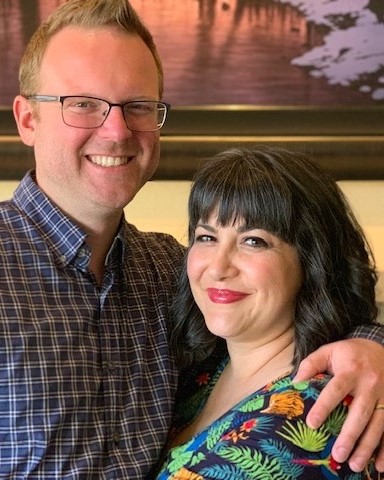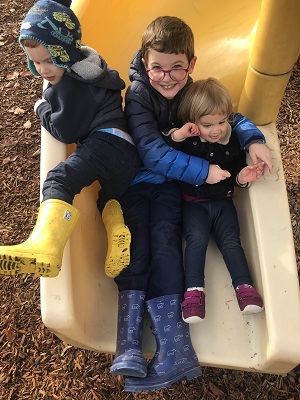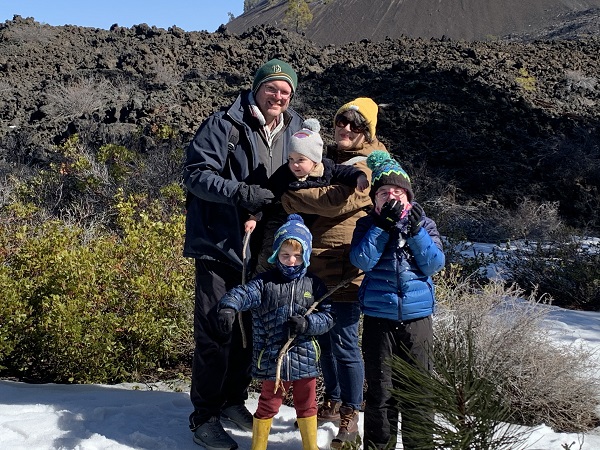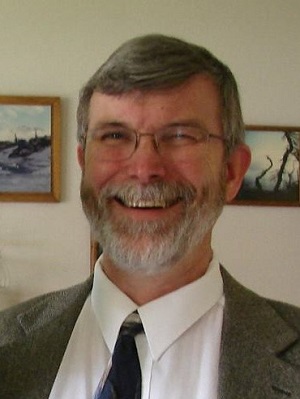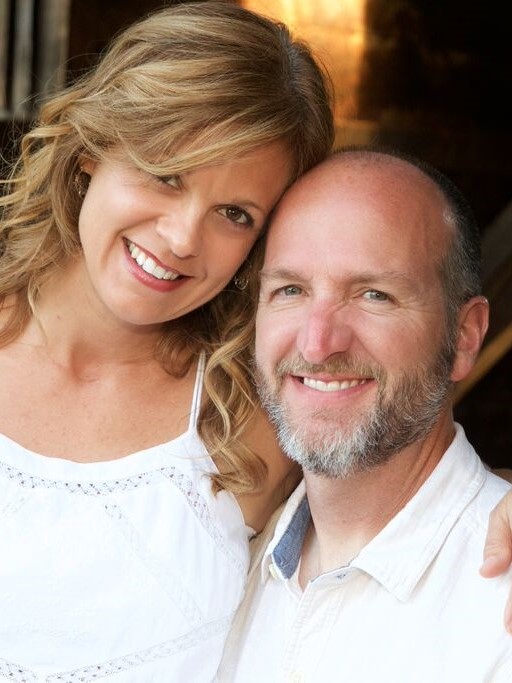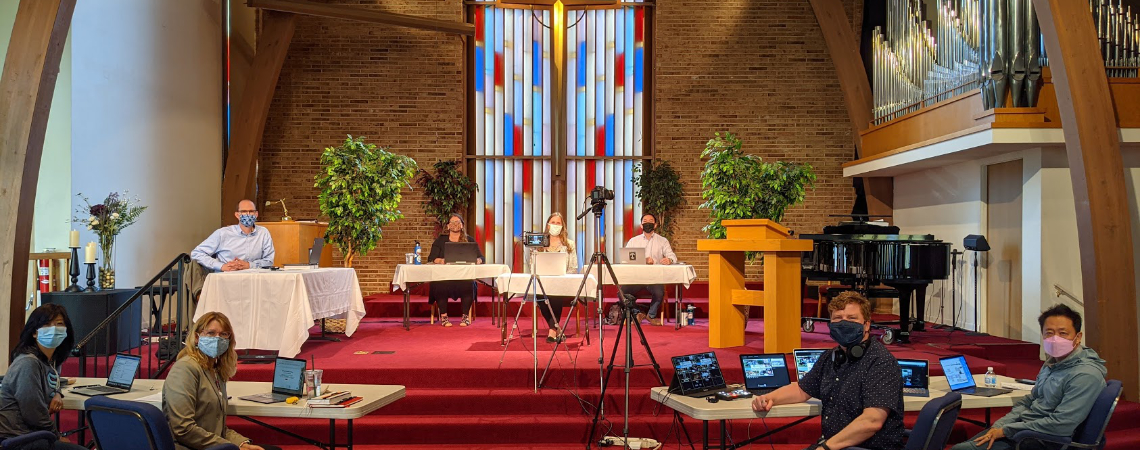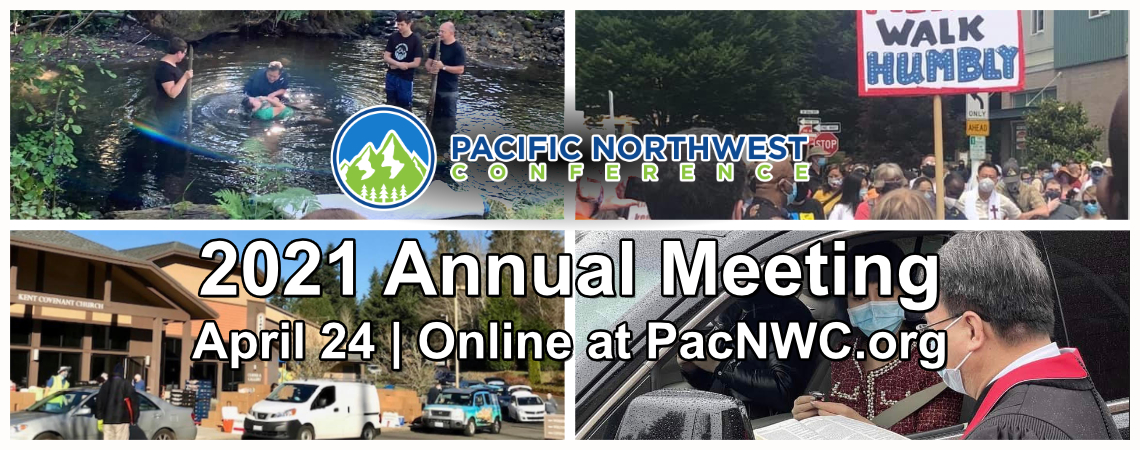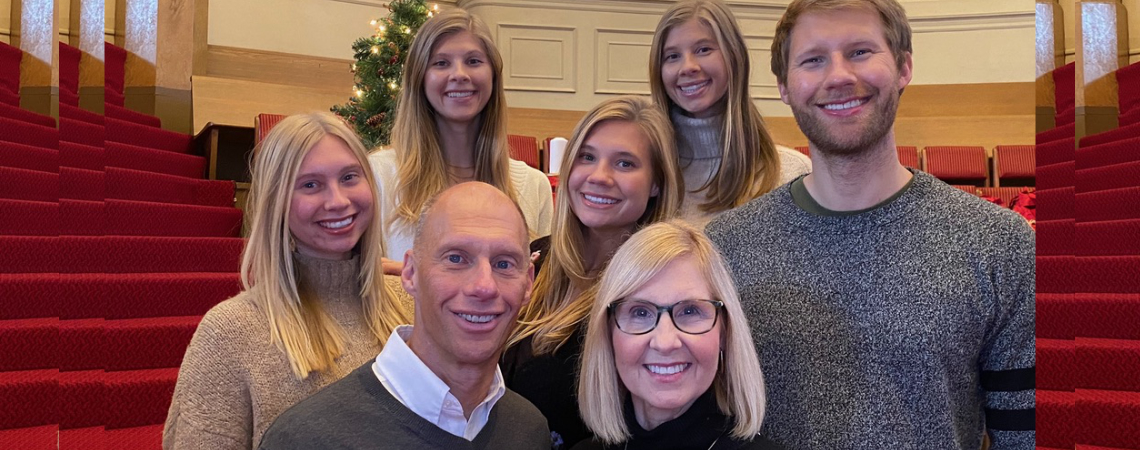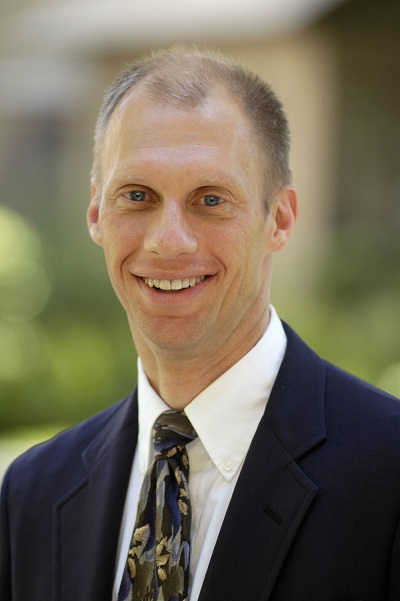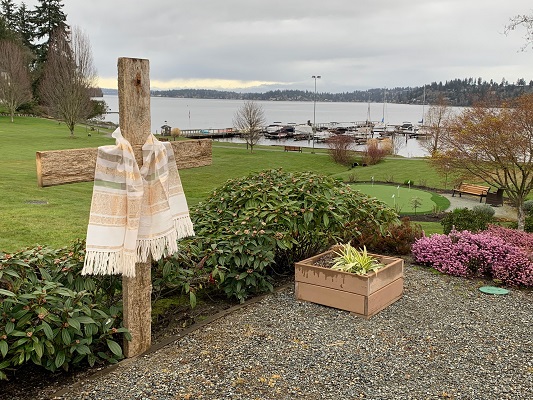This is part five of an ongoing series on prayer and evangelism prompted by a meeting with the Grace Cov, Bremerton leadership team and Pastor Grant Christensen. It was a very ordinary monthly meeting with ministry reports, budgets, and decisions made. What I was not expecting was their monthly rhythm of individually checking in with each other about their evangelism “temperature,” a practice learned at the evangelism cohort. It was refreshing to watch how they are choosing to keep sharing Christ front and center as a leadership. As often stated, “you cannot lead where you have not gone yourself.” After they shared, Pastor Grant then walked through evangelism related Bible studies that he created. I asked Grant if he would share his material and he graciously said that his only requirement is that it would never be sold. So much for the conference fundraiser! I include it below to encourage and to stir. May we walk as those full of the Holy Spirit as we share Christ today. Greg Yee
by Grant E. Christensen, Pastor, Grace Covenant Church
Matthew 9:35-38 Jesus was going through all the cities and villages, teaching in their synagogues and proclaiming the gospel of the kingdom, and healing every kind of disease and every kind of sickness. {36} Seeing the people, He felt compassion for them, because they were distressed and dispirited like sheep without a shepherd. {37} Then He said to His disciples, “The harvest is plentiful, but the workers are few. {38} “Therefore beseech the Lord of the harvest to send out workers into His harvest.” 1
Just as Jesus began His third tour of the cities and villages of Galilee while seeing the distressed condition of those living within the region, Jesus commanded His disciples to pray one of the clearest evangelistic prayers in the New Testament: Therefore beseech the Lord of the harvest to send out workers into His harvest.” So often, we Christians have approached this prayer hoping that God would raise another Billy Graham or those trained to enter the ministry, thereby limiting our expectations to a select few—those gifted and trained. Yet, Jesus, in choosing the twelve, did not begin with calling priests, scribes, or Pharisees. Instead, He called ordinary fishermen and even a tax collector. Immediately following His command to pray, Jesus sent out these very ordinary men to reap a plentiful harvest, knowing that the workers were few.
In seeing the people in the region of Galilee, Jesus observed that the harvest was plentiful. In the prior verse, Matthew tells us that Jesus was moved with compassion because the people were “distressed and dispirited like sheep without a shepherd.” The word translated as distressed (σκύλλω) in the New American Standard Bible means to weary or to harass, and here in the passive voice, it means dejected. 2 Hard work can make people weary, so can the bondage of sin. Yet, herein, Matthew adds that the people were like sheep without a shepherd. Who should have been the shepherds of these people? The priests and scribes were the trained ministers of the day, who would have been in the position to be shepherds. The Pharisees, a group of laymen dedicated to keeping every last detail of the Law, were looked to by the people as the most righteous men of the time. Later on in Matthew chapter twenty-three, in His diatribe against the scribes and Pharisees, Jesus warned, “They tie up heavy burdens and lay them on men’s shoulders, but they themselves are unwilling to move them with so much as a finger.3 Hence, it is fair to say that the people were wearied and harassed by the heavy demands placed on them by the scribes and Pharisees—as well as by the priests. I, too, have been a man dejected because of the heavy demands of religion placed on me as a child.
The second term, translated as dispirited (ῥίπτω) in the New American Standard Bible, means to be “thrown down, prostrate, scattered.” 4 In the same sense, as the previous word distressed, the people had been thrown down— discarded and abandoned—by those who should have been their shepherds, leaving them a scattered flock. When Jesus saw the people forsaken and scattered by the religious leaders, Jesus was moved with compassion—a deep, gut-wrenching kind of love. The renowned historical commentator on the New Testament William Barclay wrote:
Here is one of the most characteristic things Jesus ever said. When he and the orthodox religious leaders of his day looked on the crowd of ordinary men and women, they saw them in quite different ways. The Pharisees saw the masses as chaff to be destroyed and burned up; Jesus saw them as a harvest to be reaped and to be saved. The Pharisees in their pride looked for the destruction of sinners; Jesus in love died for the salvation of sinners. 5
Hence, the plentiful harvest of which Jesus spoke were those wearied and harassed by the heavy demands of religious leaders, abandoned, and forsaken by those who were supposed to be their shepherds. The people were left dispirited, thrown down, and scattered. Everywhere Jesus went, He encountered and ministered to people who were lost and broken. Early in His ministry, a leper came running up to Jesus, and falling at His feet, said, “If you wanted to, you could make me clean.” Jesus moved with gut- wrenching compassion, reached out, and did the unthinkable. He touched the leper—something one would never do because of the risk of infection. Jesus then answered, “I want to. Be clean!”
As Jesus approached the city of Nain, followed by His disciples and a large crowd, He met a funeral procession followed by another large crowd coming out of the city gates. A widow’s only son was being carried out on a funeral bier. Having already lost her husband, her only hope for a stable life had been to live in her son’s care; now he was dead—along with her hope. Moved with gut-wrenching compassion, Jesus said to the woman, “Do not weep.” Then He again did the unthinkable and reached out and touched the bier—willing to incur corruption and ritual pollution from the corpse. He then commanded, “Young man, I say to you, arise.” To the crowds’ amazement, the young man sat up and began speaking. Jesus then tenderly gave the son back to his mother. In every age since, the harvest of broken and dejected people has continued to be plentiful.
When Jesus heard that John the Baptist had been beheaded, He withdrew by boat to a lonely place, but the relentless crowds followed Him on foot. When Jesus disembarked from the boat, seeing the large crowd—rather than being perturbed— He was again moved with gut-wrenching compassion and healed their sick.
Everywhere Jesus went, He met broken, disheartened people; He responded with gut-wrenching compassion. The people He encountered were shattered by their sin and the consequences of the fall: disease, demonic possession, and death. Jesus had come to free them from their bondage to the domain of darkness and transfer them to His Kingdom. The Apostle John wrote in 1 John 5:19, “We know that we are of God, and that the whole world lies in the power of the evil one.” 6 Jesus came for the expressed purpose of setting the world free from the evil one! He restored the leper back to life—to his family and friends, to an occupation, and to the synagogue. He gave back to the destitute widow her son, resurrected from death, restoring her to security within her son’s home and to dignity and honor within the city of Nain. And to the crowds, crowding in on His time of grief, Jesus restored them to health, removing the consequence of the fall, which had introduced disease and sickness into the world. He would yet go to the cross to offer up His life to give salvation, forgiveness, and eternal life to anyone who would believe—by simply putting their trust in Him, the Messiah, and Son of God.
As I look at the communities surrounding the city within which I live, and as I watch the news or read the news online, I see a world full of hurting, lost, and broken people, shattered by their sin and sin’s consequences. I see a world full of throw-away people—bruised reeds and smoldering wicks—a world for which Jesus is yet moved with gut-wrenching compassion. The harvest continues to be plentiful!
After declaring that the harvest was plentiful, Jesus then went on to say, “but the workers are few.” Jesus began with just twelve disciples—and one of them a traitor. In the chapter following our text, Jesus sent out His twelve disciples, giving them authority to cast out demons and to heal every disease and sickness—giving them the power to overthrow the works of the domain of darkness. In Luke chapter ten, Jesus appointed seventy others, sending them out in twos to all the towns and villages where He would later visit. Whether twelve, seventy, or eighty-two, the task must have been daunting.
After Jesus’ crucifixion and resurrection, with the disciples’ minds fully opened by the Holy Spirit to understand the scriptures, the task of proclaiming the gospel increased exponentially. Rather than being sent only to the cities, towns, and villages of Israel, now the whole world was their field to harvest. To this day, believers in Jesus have been seeking to reap the plentiful harvest! Today, about 2.3 billion people claim to be Christians, roughly 31.1 percent of the world’s 7.8 billion population. How many of these are genuinely born-again Christians only God knows, yet even with a very generous estimation, that still leaves some five and a half to six and a half billion people to reach. The workers are indeed few!
Jesus then continued in Matthew 9:38, leading with the word, therefore (οὖν), a term which makes an inference from what precedes, resulting in what follows. This word translated from the original language of the New Testament means, “so, therefore, consequently, accordingly, then.” 7 Also, when used with commands, it can have an intensive force—intensifying what follows. 8 The inference Jesus made from His observation that “the harvest is plentiful, but the workers are few,” was an emphatic, intensive command to His disciples to pray to “the Lord of the harvest to send out workers into the harvest.” Jesus’ command has a strong sense of urgency, revealing His ardent desire to save people from their sin and the grip of the domain of darkness. He has an unfathomable love for every human being lost in the dark, in bondage to sin, and to the power of the evil one. Therefore, Jesus’ command still rings out His urgent, clarion call to us today!
Furthermore, the word Jesus used to command His disciples to pray also conveys a sense of dire urgency. The New American Stand Bible translates the word as beseech, which means “to ask for something pleadingly.” 9 In the New Testament, the word is found only with this sense of pleading. 10 Jesus is commanding His disciples to plead with, to beg the Lord of the harvest, “to send out workers into the harvest.”
The phrase the Lord of the harvest refers to God the Father who is sovereign over His harvest. 11 In Matthew 21:33-41, Jesus tells a parable about a vineyard and harvest time, revealing the identity of the Lord of the Harvest:
Matthew 21:33-41 {33} “Listen to another parable. There was a landowner who planted a vineyard and put a wall around it and dug a wine press in it, and built a tower, and rented it out to vine-growers and went on a journey. {34} “When the harvest time approached, he sent his slaves to the vine-growers to receive his produce. {35} “The vine-growers took his slaves and beat one, and killed another, and stoned a third. {36} “Again he sent another group of slaves larger than the first; and they did the same thing to them. {37} “But afterward he sent his son to them, saying, ‘They will respect my son.’ {38} “But when the vine-growers saw the son, they said among themselves, ‘This is the heir; come, let us kill him and seize his inheritance.’ {39} “They took him, and threw him out of the vineyard and killed him. {40} “Therefore when the owner of the vineyard comes, what will he do to those vine-growers?” {41} They said to Him, “He will bring those wretches to a wretched end, and will rent out the vineyard to other vine-growers who will pay him the proceeds at the proper seasons.” 12
Jesus was telling this parable on Himself and His Father. The landowner depicts God the Father; the servants, the prophets of old; and the son, Jesus Himself. He is the Son who will be sent to the cross by the very priests, Scribes, and Pharisees who purportedly were leading the nation of Israel in the worship of God. He sent Jesus to this earth to reap a harvest of human souls! In like manner, God also ardently desires to send out workers into the harvest in every age!
Jesus commanded His disciples to beg the Lord of the harvest to send out workers into the plentiful harvest. In the original language of the New Testament, there are at least twelve words translated into English with the term sent. Of these many words, the term used here is not what one would expect. One would anticipate finding the word apostellō (ἀποστέλλω), a word from which we derive the word apostle. The verb means “to dispatch someone for the achievement of some objective, send away/out.” 13 Jesus used the word apostellō in Matthew 10:5, “These twelve Jesus sent out after instructing them: “Do not go in the way of the Gentiles, and do not enter any city of the Samaritans.” 14 Jesus was sending out His disciples on a mission to preach that the Kingdom of Heaven is at hand.” The word is used in many places in the New Testament with the sense to send out on a mission to preach the gospel. One would have expected Jesus to have used the same word just five verses before in chapter 9, verse 38.
Yet, in Matthew 9:38, the word translated to send out is the word ekballō (ἐκβάλλω) which means literally to throw out or cast out. The term is a strong word. A. T. Robinson says of the word: “The verb ἐκβαλλω [ekballō] really means to drive out, to push out, to draw out with violence or without. 15 Marvin Vincent gives the following definition: “Send forth (ἐκβάλῃ). So the Authorized Version (KJV) and the Revised Standard Version. But the word is stronger: thrust out, force them out, as from urgent necessity.” 16 The word is used to describe casting out demons out of possessed people, such as in Matthew 8:16, “When evening came, they brought to Him many who were demon-possessed; and He cast out the spirits with a word, and healed all who were ill.” 17 The word is also used when Jesus drove out the money changers in Matthew 21:12, “And Jesus entered the temple and drove out all those who were buying and selling in the temple, and overturned the tables of the money changers and the seats of those who were selling doves.” 18
In Acts chapter eight, there is an account of when God allowed persecution to fall on the church in Jerusalem—which drove them out into the harvest:
Acts 8:1–8 {1} Saul was in hearty agreement with putting him [Stephen] to death. And on that day a great persecution began against the church in Jerusalem, and they were all scattered throughout the regions of Judea and Samaria, except the apostles. {2} Some devout men buried Stephen, and made loud lamentation over him. {3} But Saul began ravaging the church, entering house after house, and dragging off men and women, he would put them in prison. {4} Therefore, those who had been scattered went about preaching the word. {5} Philip went down to the city of Samaria and began proclaiming Christ to them. {6} The crowds with one accord were giving attention to what was said by Philip, as they heard and saw the signs which he was performing. {7} For in the case of many who had unclean spirits, they were coming out of them shouting with a loud voice; and many who had been paralyzed and lame were healed. {8} So there was much rejoicing in that city. 19
As a result of the persecution, God drove many in the church of Jerusalem out into an ever-widening, plentiful harvest!
When first preaching through a series on Prayer and Evangelism about ten years ago, I preached on the verses in Matthew 9:35-38. I began praying this prayer both for myself and for the congregation I serve. God started to answer the prayer, yet slowly at first. After participating in a two-year Evangelism Cohort, one of the recommendations was to join something—with the expectation of joining something outside of the church. As a recovering alcoholic, the choice to go back to Alcoholics Anonymous was clear. At one of my first meetings, I met a man named Richard, who called himself the pastor of A. A. He urged and prompted me to attend more meetings with him, to share about the immeasurable love of Jesus for broken men and women and to share the gospel. Yet, attending those meetings was, for the most part, self-initiated. God had not yet cast me out into the harvest.
In August of 2018, I was diagnosed with prostate cancer. After an MRI showing cancer had grown outside my prostate, an excellent surgeon soon removed my prostate. I then had to wait eight weeks before my doctor could test to see if he had removed all cancer. When the results came back, they showed that I still had prostate cancer somewhere in my body. I underwent a series of scans, which resulted in my surgeon diagnosing me with metastatic, stage-four cancer, which had metastasized to my right pubic bone. I was devastated. My wife and I decided to go to the Seattle Cancer Care Alliance, one of the nation’s finest cancer treatment centers. When we first arrived at the clinic on the south end of Lake Union in Seattle, I discovered that SCCA had been built across the street from the location where I had worked as an industrial janitor at Van de Kamps Dutch Bakery during my college years. Fred Hutch Cancer Research Center had been built on the very land where Van de Kamps had been located.
Years before, in 1983, I had suffered a severe head injury due to a night of heavy binge drinking. We had returned to work to pick up a friend’s coat at the bakery when I went berserk outside the bakery. Charging down Valley Street towards Yale, I stumbled and hit my head against a curb. On the following day, my friends took me to the University of Washington emergency room after discovering that I had lost my ability to speak from the head injury. Immediately upon my arrival, the doctors ordered a CAT scan, which showed five bleeds in my brain. One of the bleeds was a large hematoma in the speech center of my brain. I was left unable to speak. Yet, God healed me—even though the doctor was sure that I would die.
I had not been back to that place, nor to that curb, in thirty-five years. The second time we went to the Seattle Cancer Care Alliance, I sat down on the curb where I had hit my head and wept out of gratitude for the wonderful life He has given me to live. While going through my continued treatment at SCCA, God has given me ample opportunities to share my story of how God rescued me and delivered me from a life of alcoholism and addiction. Later that summer, I had to undergo thirty-nine radiation treatments at Seattle Cancer Care Alliance in Poulsbo. Again, God opened so many opportunities to share my story and the gospel. Since then, I have been at other clinics as well, where God has cast me out into the plentiful harvest. Yet, in all these locations, I was not seeing people coming to faith in Christ. The Holy Spirit reminded me that to have a plentiful harvest, someone must do the seed planting.
After spending over a year planting seeds, I asked God if He would allow me to see some people come to faith. I continued to pray that the Lord of the Harvest would drive us out into the harvest. Then came the coronavirus. I serve a high-risk congregation, including myself, a pastor vulnerable to the virus. We are a high-risk congregation, not just because of age but also because of health issues that have arisen out of lives lived hard. We immediately moved our Sunday service online, live streaming our services on Facebook, and then posting them later to YouTube. Soon after starting our online services, a special-ops soldier in a country in the Mideast began watching. Within a few weeks, her entire platoon serving under her command joined her in watching our services. Then many of the Arabic-speaking soldiers serving with them on their base joined us. As I have conducted the services and preached, members of the congregation I serve have chatted in the Facebook comment section, encouraging one another and the soldiers gathered. Each week we have more than thirty soldiers joining us from halfway around the world. Since starting, eighteen Arabic speaking soldiers have come to faith in Christ, believing the Promise of Life found in the Gospel of John. One of the Arabic-speaking soldier’s wife and brother have also come to faith in Christ. When we began, only three of the special-ops soldiers in a platoon of sixteen were Christians; the entire team has now believed in Jesus for eternal life. Also, two Air Force personnel stationed on the base have come to Christ, along with a marine who serves with them. God has propelled our congregation into the plentiful harvest through being sequestered in our homes!
I am grateful to the Holy Spirit for putting the prayer in Matthew 9:38 on my lips and then answering the prayer. A cancer diagnosis became for me multiple opportunities to share my witness of the transforming power of Jesus’s grace and to give out the Gospel of John when I have felt led. The pandemic became an ongoing opportunity for our congregation to minister to soldiers who continue to fight in fierce battles—risking their lives—while a growing number of soldiers of different ethnicities—and their families—are coming to faith in Christ!
What might happen to a church which decides to pray fervently, pleading to the Lord of the harvest with one voice to be thrown out into the plentiful harvest. Oh, that the Lord would propel us out into the lives of broken men and women with the startling news of the extravagant grace and truth of Jesus! What would happen in the broader church if we began to beg our heavenly Father to drive all of us out into the harvest? Do whatever it takes, Lord, and as long as it takes! I suspect that most of us are reluctant to go out into the harvest; maybe that is why Jesus commanded us to beg the Lord of the Harvest to send out workers into the plentiful harvest!
One day, the Lord Jesus will call me home. Then, I will find out what came of all those seeds which the Holy Spirit planted through me. When we all find ourselves finally home, we will have new eternal friends, eternal brothers and sisters, who will be with Jesus forever. We will be together with them because of the Holy Spirit’s work in and through us. The Father, Son, and Holy Spirit love the broken, sinful lives of this world beyond what we can imagine. The clarion, urgent call of Jesus commanding each of us to beg the Lord of the harvest to drive us out into the plentiful harvest continues to sound out loudly in our age! Our response?
“Drive us out, Lord! Propel us out!”
Our response?
“Here I am, send me!”
© 2020 by Grant Christensen. “Freely you have received, freely give.” (Matthew 10:8b NIV) You are free to share— copy and redistribute in any medium or format—as long as you don’t change the content and don’t use commercially without permission of the author or author’s family.
- 1 New American Standard Bible: 1995 Update. La Habra, CA: The Lockman Foundation, 1995.
- 2 William Arndt et al., A Greek-English Lexicon of the New Testament and Other Early Christian Literature (Chicago: University of Chicago Press, 2000), 933.
- 3 New American Standard Bible: 1995 Update. La Habra, CA: The Lockman Foundation, 1995.
- 4 William Arndt et al., A Greek-English Lexicon of the New Testament and Other Early Christian Literature (Chicago: University of Chicago Press, 2000), 906.
- 5 William Barclay, The Gospel of Matthew, Third Ed., The New Daily Study Bible (Edinburgh: Saint Andrew Press, 2001), 411–412.
- 6 New American Standard Bible: 1995 Update. La Habra, CA: The Lockman Foundation, 1995.
- 7 William Arndt et al., A Greek-English Lexicon of the New Testament and Other Early Christian Literature (Chicago: University of Chicago Press, 2000), 736.
- 8 William Arndt et al., A Greek-English Lexicon of the New Testament and Other Early Christian Literature (Chicago: University of Chicago Press, 2000), 736.
- 9 William Arndt et al., A Greek-English Lexicon of the New Testament and Other Early Christian Literature (Chicago: University of Chicago Press, 2000), 218.
- 10 William Arndt et al., A Greek-English Lexicon of the New Testament and Other Early Christian Literature (Chicago: University of Chicago Press, 2000), 218.
- 11 66 sn The phrase Lord of the harvest recognizes God’s sovereignty over the harvest process. Biblical Studies Press, The NET Bible First Edition Notes (Biblical Studies Press, 2006), Mt 9:37–38.
- 12 New American Standard Bible: 1995 Update. La Habra, CA: The Lockman Foundation, 1995.
- 13 William Arndt et al., A Greek-English Lexicon of the New Testament and Other Early Christian Literature (Chicago: University of Chicago Press, 2000), 120.
- 14 New American Standard Bible: 1995 Update. La Habra, CA: The Lockman Foundation, 1995.
- 15 A.T. Robertson, Word Pictures in the New Testament (Nashville, TN: Broadman Press, 1933), Mt 9:38.
- 16 Marvin Richardson Vincent, Word Studies in the New Testament, vol. 1 (New York: Charles Scribner’s Sons, 1887), 57.
- 17 New American Standard Bible: 1995 Update. La Habra, CA: The Lockman Foundation, 1995.
- 18 New American Standard Bible: 1995 Update. La Habra, CA: The Lockman Foundation, 1995.
- 19 New American Standard Bible: 1995 Update. La Habra, CA: The Lockman Foundation, 1995.




